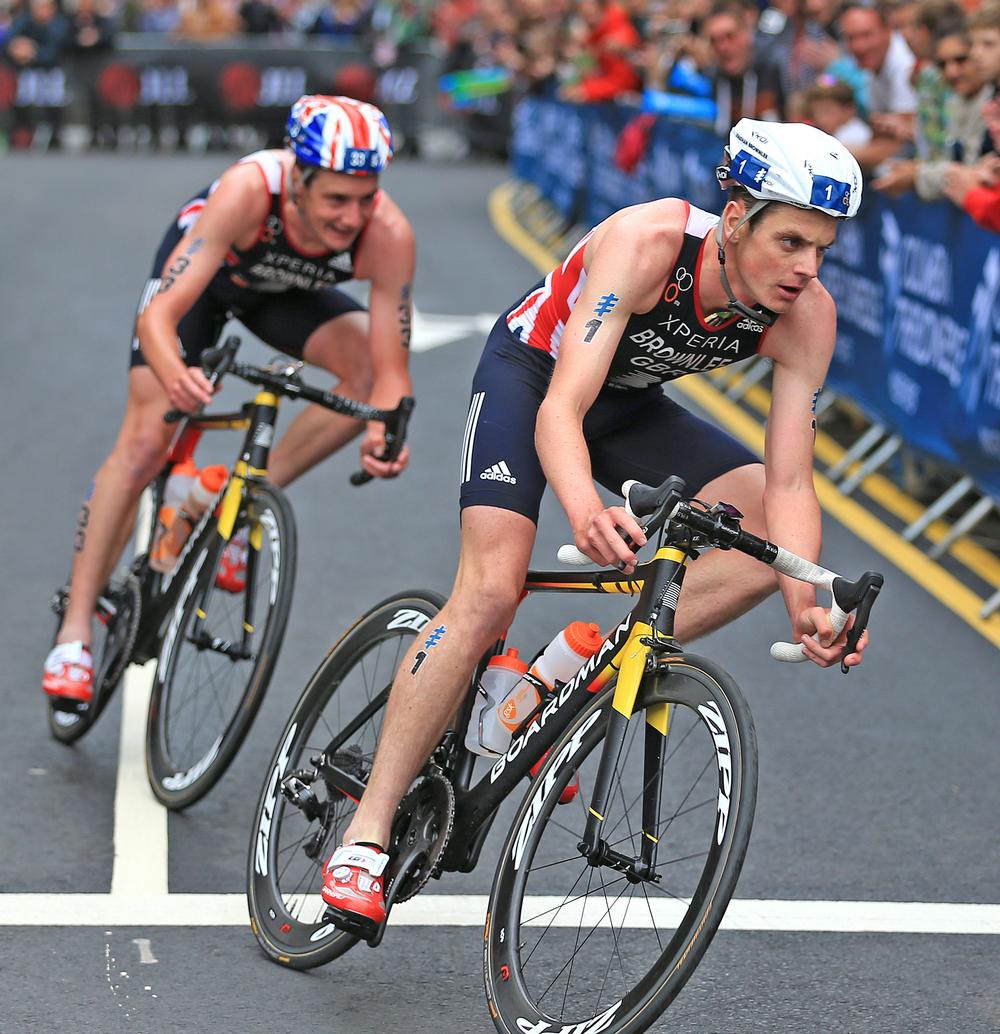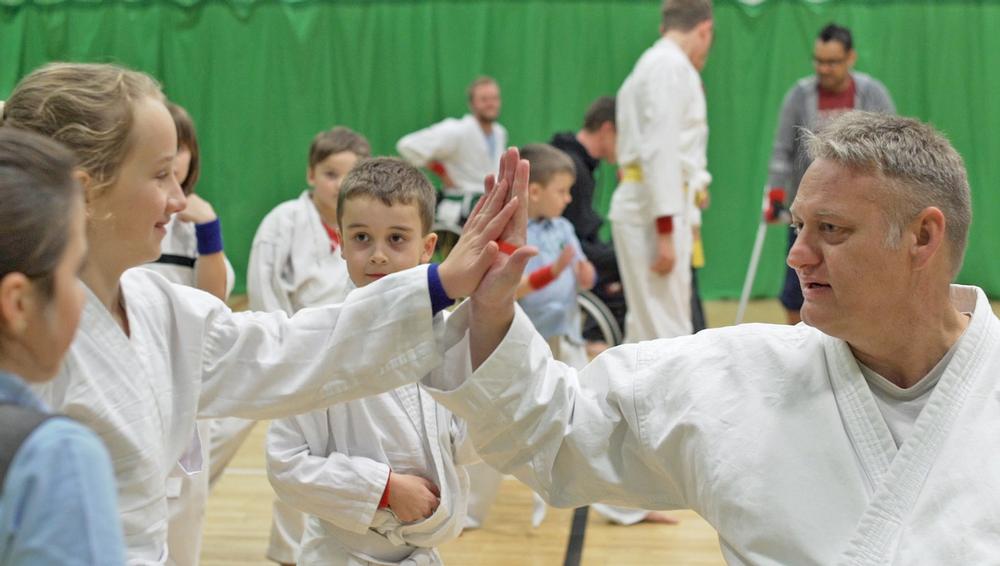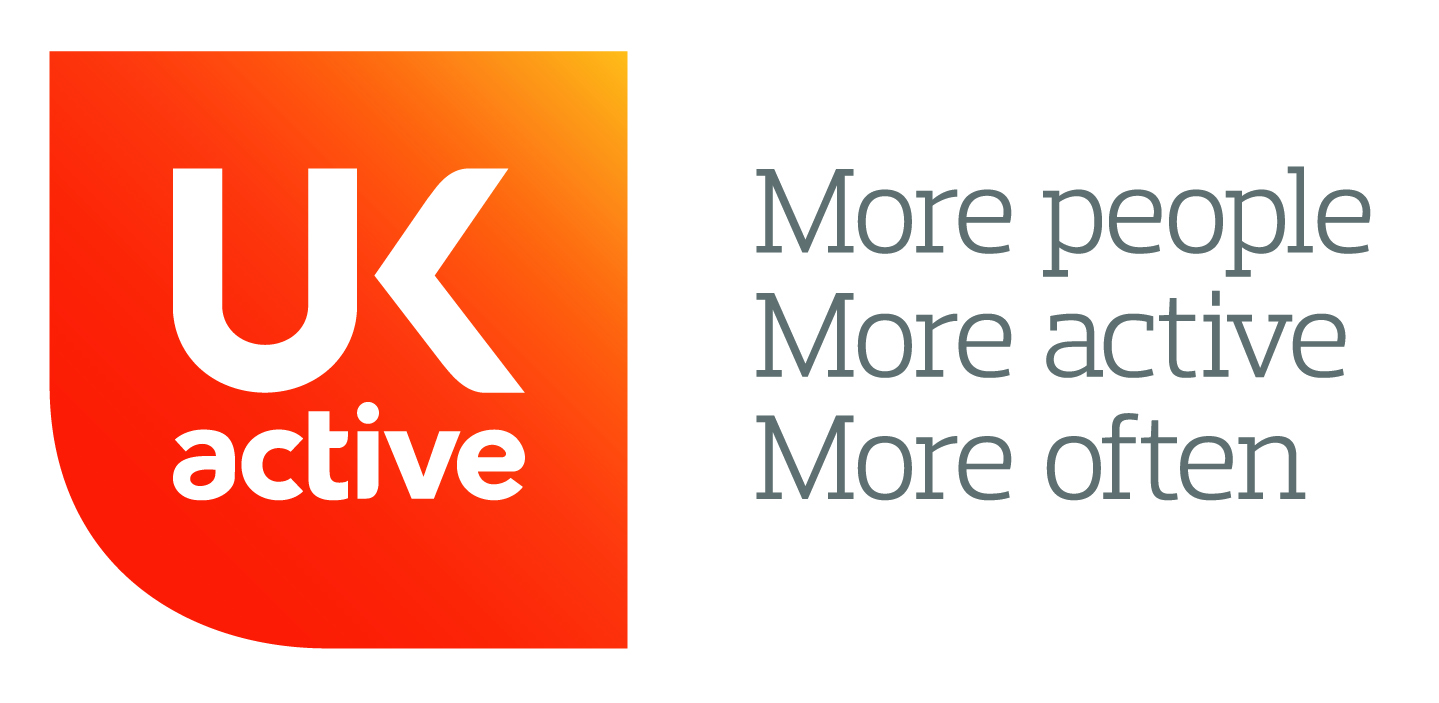Profile: Mark Gannon - Coaching the UK
From the first sports lesson all the way to the Olympics, good coaches transform lives. UK Coaching CEO Mark Gannon talks to Kath Hudson about building a robust network of great coaches

UK Coaching wants to get more people active,” says Gannon. “Ultimately our aim is to support, guide and inspire people to achieve goals and transform their lives through sport and activity. Great coaches are the key – they can change people’s lives.”
Hopefully, we’re all lucky enough to have fond memories of that coach who changed our lives, either by inspiring us to do a sport that became a habit for life or by pushing us to reach a level we never thought possible.
Malcolm Brown, for instance, who won the Lifetime Achievement Award at the UK Coaching awards in December for his work with the Brownlee brothers, has created a fantastic legacy, with the Brownlee’s success on the international stage bringing triathlon to the forefront.
But it’s not just elite coaches who transform lives. Gannon says he’s inspired by former national gymnastics coach and lecturer, Mike Talbot, who worked with people of all abilities, helping them achieve more than they thought possible – in gymnastics and in life.
Gannon says coaches can make the difference between a community sports club that’s sustainable and one that’s not. If the coach training the five-year-olds at Saturday morning football shouts all the time, they’ll stop coming and the membership will dwindle.
Improving accessibility
UK Coaching’s research has found that in any given year, there’ll be around three million registered coaches, 60 per cent of whom are unpaid. The coaching population is fluid, and while new people enter each year, others move on. This can be a challenge, as sports that are enjoying surges in popularity, such as gymnastics and girl’s football, can find themselves unable to meet demand. Not to mention the difficulty for a club when a favourite coach retires or leaves and must be replaced.
Ensuring good quality coaches keep coming through the pipeline, and stay in coaching, is UK Coaching’s primary focus, and the organisation has identified that in order to make this happen, access to training and qualifications needs to be easier. “Everyone is time-poor and parents who offer to help with the rugby team don’t necessarily want to go on a three day course,” he says.
“Over the next 12 months, we’ll be investing heavily in technology to provide more online education services, which will allow coaches to undertake qualifications in bite-sized chunks, when it’s convenient for them. We’ve made a significant investment in a new website, which – as well as incorporating learning – aims to build social interaction through a virtual coaching community.”
People skills
In recent years, there’s been a major shift in the focus of coaching qualifications, which now centre around interpersonal skills. This can be seen in UK Coaching’s recently developed Coaching Behaviours Framework, which sets out its vision for the future of coaching.
“Coaching has changed greatly during the 30 years I’ve been involved in sport,” says Gannon. “Traditionally it was focused on technique, but now the core element is people skills, because it’s people who inspire people. It’s people who deliver the experience and make participants want to come back. A good coach has to understand what the participant wants to achieve and also how to get the best out of them.”
This approach has the added advantage of opening up coaching to more people, even if they lack some technical prowess. Gannon says people choose to coach for a number of reasons, sometimes they’re an ex-athlete wanting to give back, or a youth on a leadership scheme. But often it’s just a parent offering to help out, who may not have fantastic ability themselves, but are good with children or have a gift for imparting information.
Diversity and inclusivity
Another focus for UK Coaching is to improve the diversity of coaches. A number of initiatives are underway across four key areas: women, talent, children and lower socio-economic groups. ‘Reach’ is one such initiative that’s aimed at getting more women into coaching. “A lot of women go into the fitness sector and they’re great coaches, because they’re first and foremost a people person,” says Gannon. “But there isn’t the same amount of female representation in traditional community sport and we need to address this and get them involved.
“Part of this comes down to changing the culture of sport – some golf clubs have only just started allowing women into the clubhouse. If more women and people from diverse backgrounds start coaching, those clubs will become more inclusive, but we have to support coaches better to enable them to thrive in these environments.”
The organisation was awarded UK Sport’s Intermediate Level of Equality Standard in 2017 for its commitment to equality and diversity, and is currently working with a number of clubs that understand the benefits of being more diverse. The aim is to use these clubs as case studies to bring more people on board.
Over the next three to four years, UK Coaching will be looking to train more coaches in hard-to-reach communities, including areas of socio-economic deprivation. “We already have good examples of where we’ve supported people from deprived areas, training them as coaches, and they’ve gone on to set up sporting activities in that area,” says Gannon (see case study).
“Sport is competing with other sectors, such as electronic gaming, so to engage people, we have to provide a great experience. And this comes back to the coach, as they create the environment. If you can work with someone inactive and give them a good experience, they’ll become an ambassador for that activity.”
Going forward, Gannon advocates further collaboration with a variety of sports and also the health and fitness sector, with the organisation working with CIMSPA to develop professional standards for coaching. “Sports can learn a great deal from health and fitness, where instructors have raised their game in order to earn a living from coaching. They’re all about offering a great service and experience to keep people coming back.”
It’s an exciting time for coaching, with fresh thinking and new approaches being embraced. Hopefully the end result will not only be greater participation numbers in a variety of sports, and from a wider spread of the population, but also a population with improved physical and mental wellbeing and positive outlook on life.
New name, new horizons

Formerly known as Sports Coach UK, the organisation was rebranded as UK Coaching in order to have a wider focus, beyond traditional sports. Aiming to be the first port of call for all coaches, it receives funding from UK Sport and Sport England, as well as undertaking revenue-generating activities such as training. It works closely with national governing bodies, county sport partnerships, employers, local authorities and REPs.
Case study
Coaching Birmingham
The Birmingham Way, an initiative led by UK Coaching, is an example of how it’s engaging hard-to-reach groups. Research showed 80 per cent of Birmingham residents were inactive, a situation that was costing the NHS around £20m a year: forty per cent of people in the city are in the top 10 per cent of most deprived households in the country.
Insight work revealed delivery needed to change, as the traditional, one size fits all approach was considered boring. People wanted fun sessions, doing activities they enjoy, near home and led by people like themselves.
UK Coaching used different recruitment tactics to find people with the right values and then provided them with flexible learning and training opportunities. Once they started coaching they were supported through mentoring.






Centre Manager
Director of Operations
Fitness Motivator
Recreation Assistant/Lifeguard (NPLQ required)
Membership Manager
Recreation Assistant
Duty Manager (Dry)
Swim Teacher
Swim Teacher
Chief Executive Officer, Mount Batten Centre
Swim Teacher
Swimming Teacher
Swimming Teacher
Company profile

Featured Supplier

Property & Tenders
Company: Knight Frank
Company: Belvoir Castle
Company: AVISON YOUNG
Company: London Borough of Bexley
Company: Forestry England














